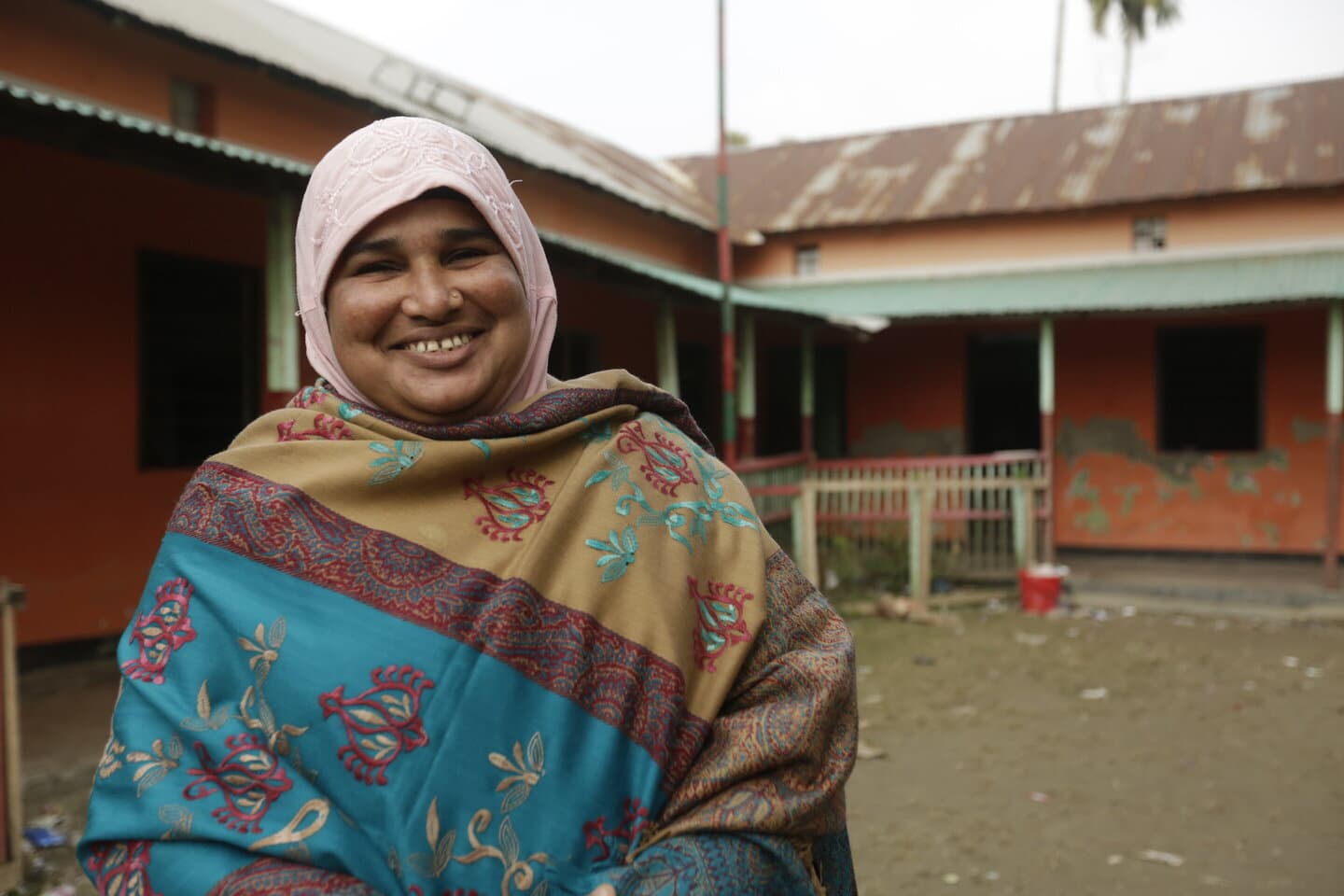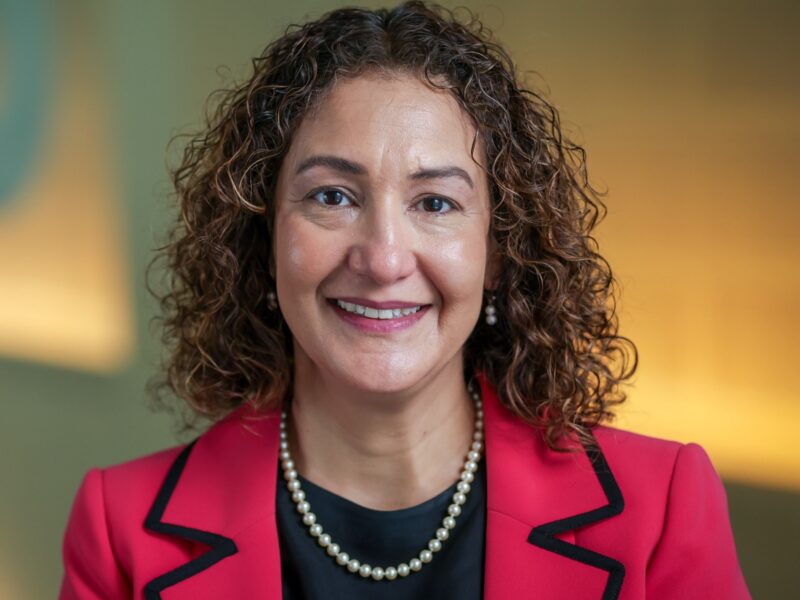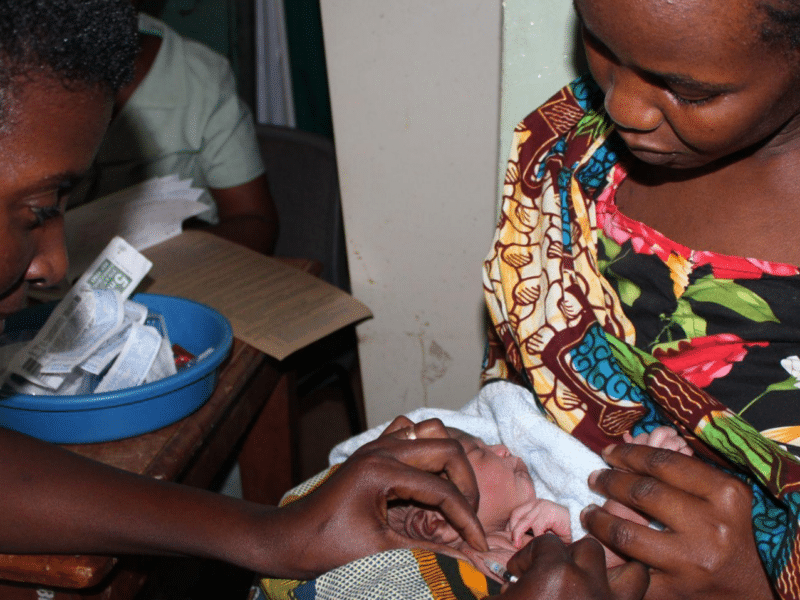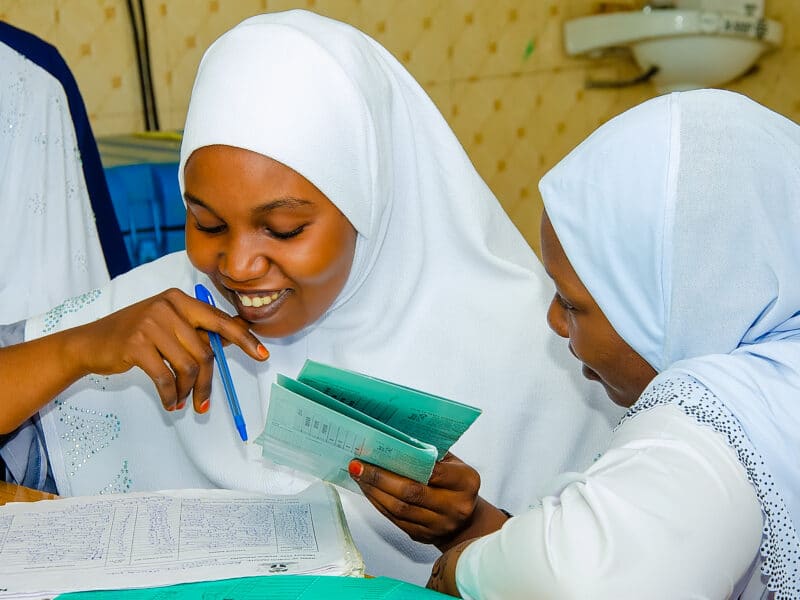Amena Begum was the first woman in her rural Bangladeshi village to be vaccinated against COVID-19.
The decision to get vaccinated wasn’t an easy one. It was hard to ignore the rumors swirling around the community about the possible perils of vaccination. But, knowing her health was on the line, she came to understand that the benefits of the vaccine outweighed any risks.
“The situation was unique and severe,” she said. “I took a leap of faith and got vaccinated.”
Amena, now 46, has been tackling trials and tribulations from a very young age. Widowed in her early twenties, she raised two sons while also running a successful shop providing digital services in her village. Women in the community not only stopped by for digital assistance, but often come to her seeking advice on personal problems, as they trust and rely on her.
During the COVID-19 pandemic, that trust gave her even more responsibilities, as women in the community flocked to her for information about how to protect themselves from the virus. Realizing the importance of getting good information to her community about the vaccine, its side effects and its benefits, she decided to become a COVID-19 vaccine ambassador under the Johns Hopkins Center for Communication Programs-led Breakthrough ACTION project to spread awareness and help her community get vaccinated. By getting vaccinated herself, Amena has served as a role model for many others in the community.
In order to prepare shopkeepers turned advocates like Amena, who are the frontline access points for many government services in their villages, to serve as ambassadors, the USAID-funded Breakthrough ACTION project (along with a2i) has organized training sessions which aim to strengthen Bangladesh’s COVID-19 vaccine roll-out efforts, especially for children ages five to 11. Vaccine ambassadors are given the tools to be able to disseminate priority messages and community concerns, while dispelling misinformation and rumors about the vaccine, and encourage people to get vaccines.
“In the training, we were encouraged to give factual or real-life examples to debunk any myth,” she said. “And, when I started giving relatable examples, people have become more accepting of that.”
Amena’s courage and willingness to protect herself and her community from the dangers of the virus has inspired many women in her community to do the same. When Sajeda Begum, her neighbor and relative, came with concerns about getting vaccinated, Amena highlighted how vaccination provides protection against the virus and boosts her immunity, while assuring her that any side effects would be mild.
After talking with Amena and hearing her vaccine experience, Sajeda told Amena she gained the confidence to take the first shot and then convinced her mother-in-law and sister-in-law to get vaccinated. And, when her two daughters got vaccines at school, she felt relieved that her kids were also protected.
Since the start of the capacity development program, 114 entrepreneurs of Shariatpur, Netrokona, and Jhalokathi districts have been trained to become COVID-19 vaccine ambassadors. They are now working towards building mass awareness at the local level by organizing interactive community sessions.
Like Amena, this cohort has been unrelenting in their efforts to educate people about COVID-19 vaccination. By profession, they are entrepreneurs, but voluntarily, they are COVID-19 vaccine ambassadors trying their best to build healthy communities.





